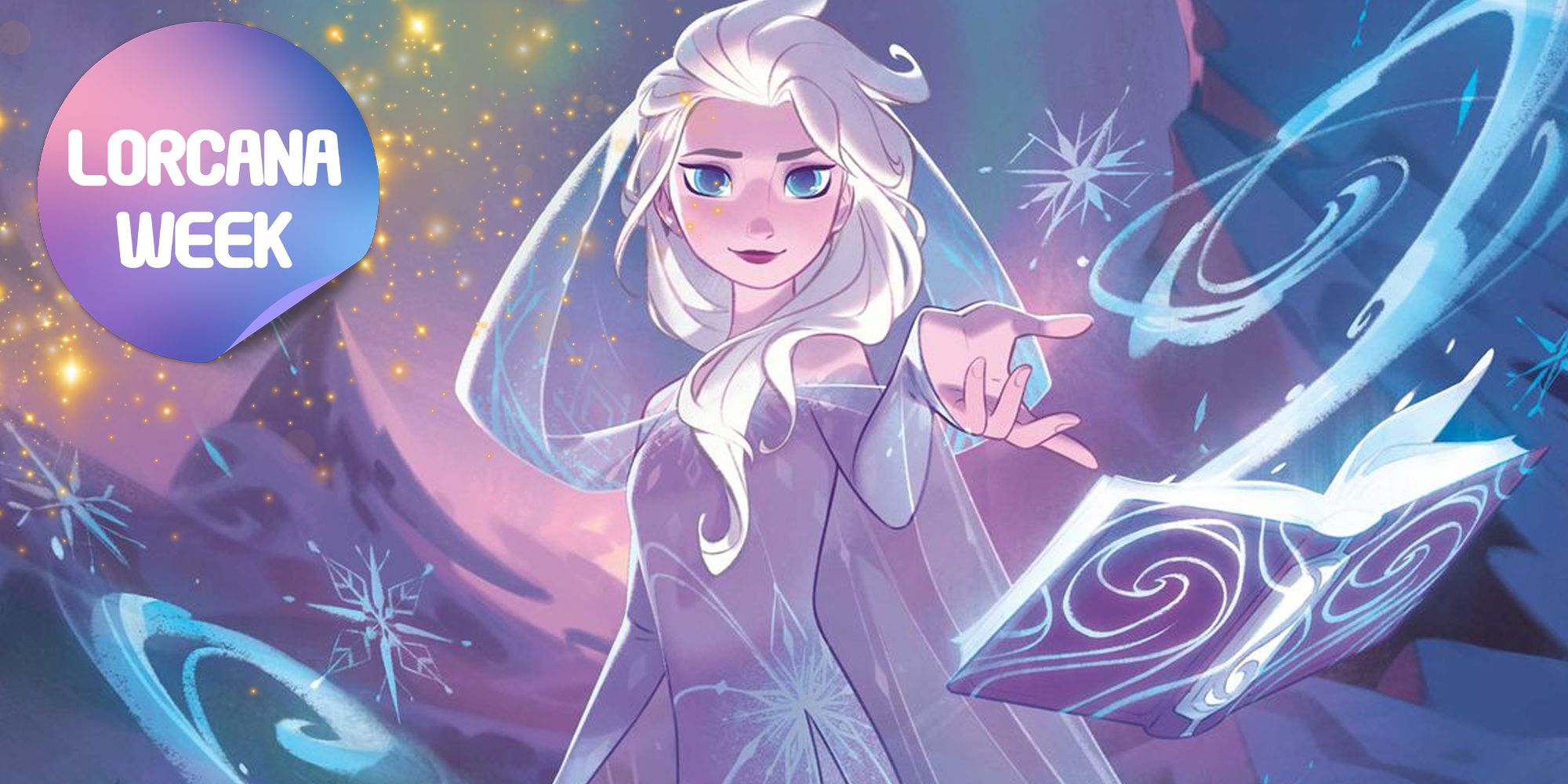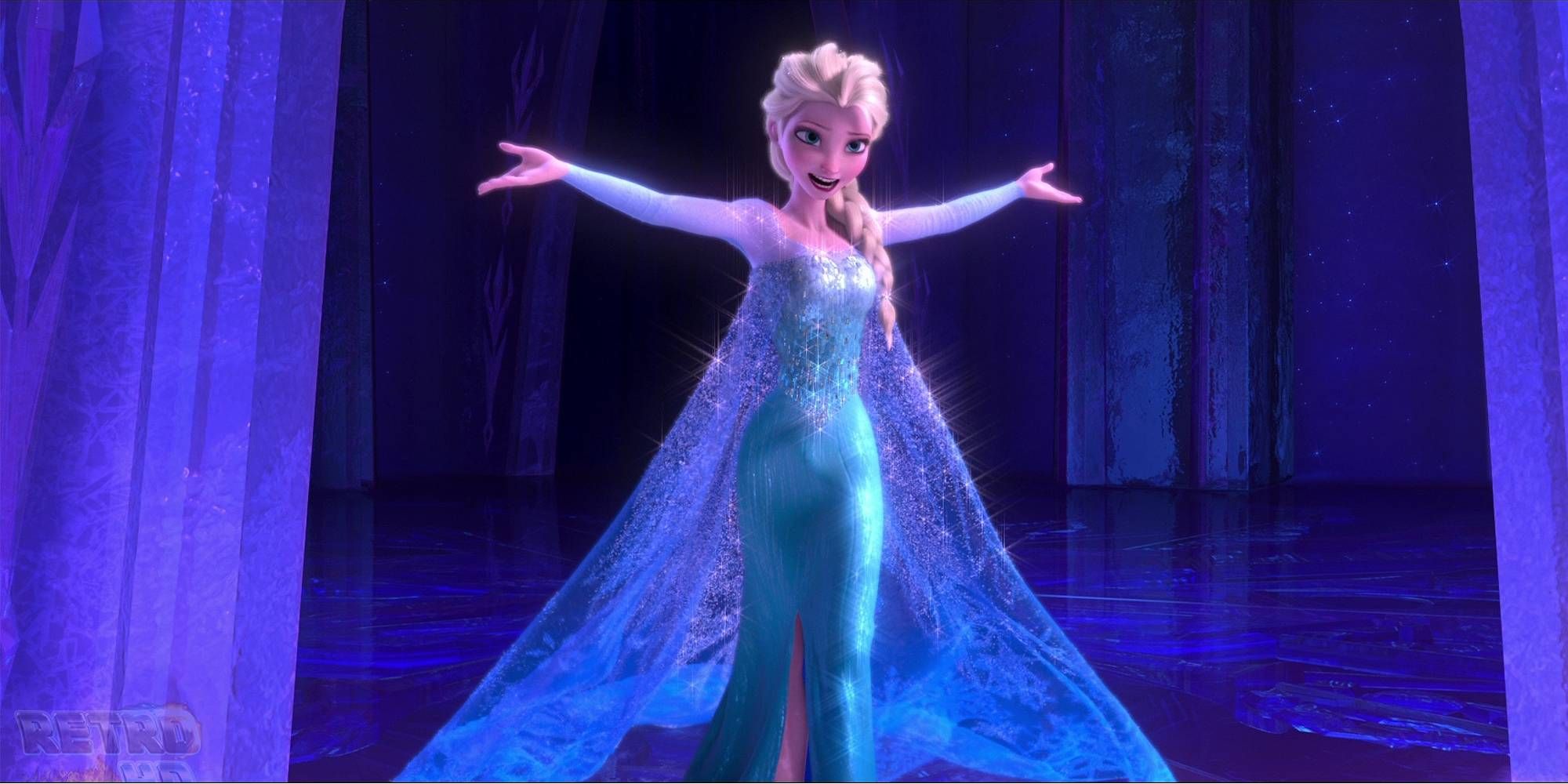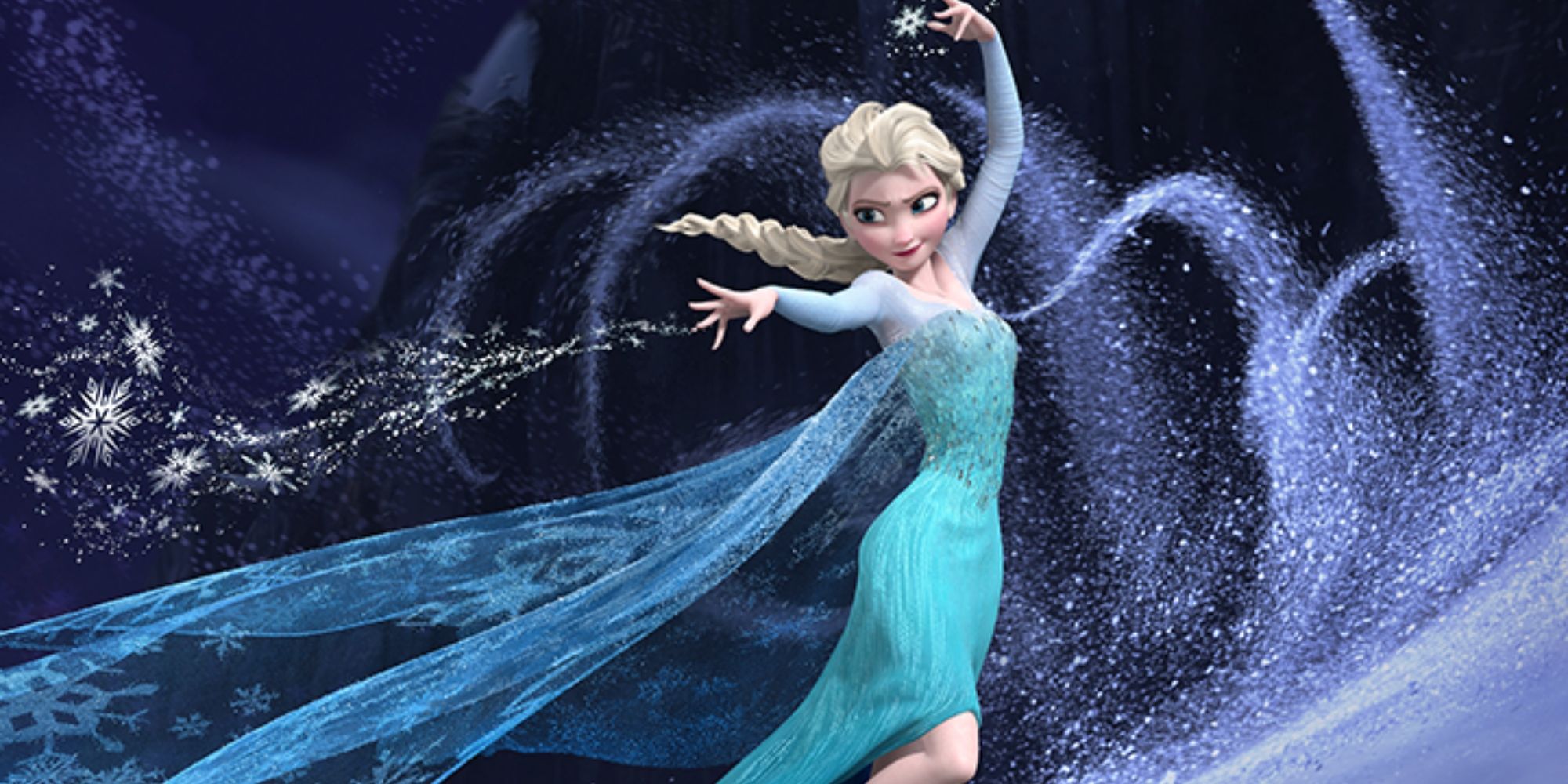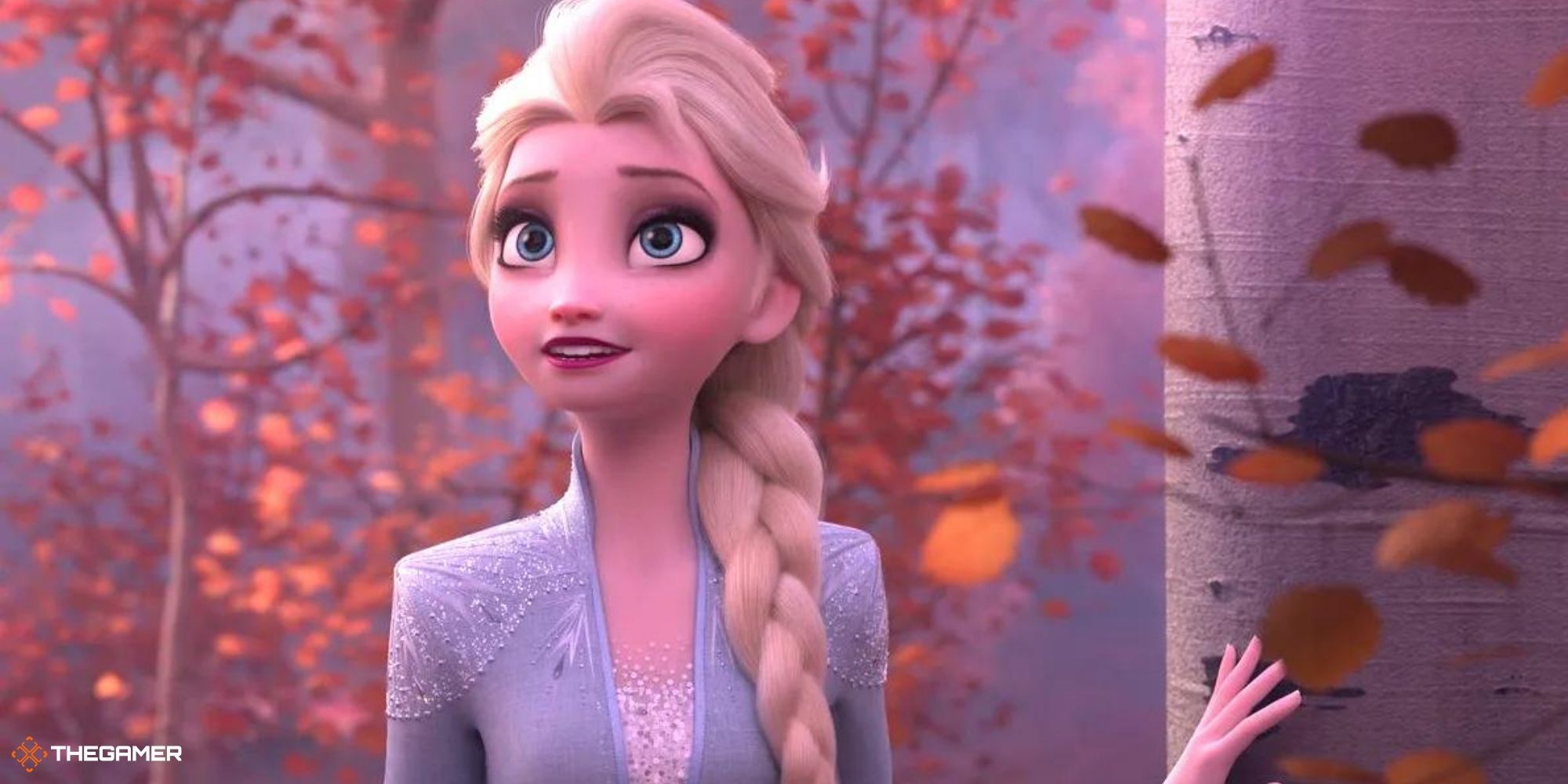If you've been reading anything I’ve written about Disney Lorcana during TheGamer's Lorcana Week, or indeed before it started, you'll have read a lot about Frozen’s Elsa. And if you haven't, you obviously know who she is anyway because she's probably the most famous Disney character of this century. She's not technically a Princess, but nevertheless acts as the lynchpin in my various hypothetical Princess Decks.
She's my favourite Disney character, and a major reason I care about Lorcana at all is her existence - and thus I have only been pulled deeper in as new variants of her have been revealed. What the run-up to Disney Lorcana's launch has reminded me of the most is my connection to Elsa, and why she means so much to me.
For most people, their favourite Disney character is the one they watched the most as a kid. That makes a lot of sense - we form deep bonds as children and (as many tired parents will know) have no qualms about watching our favourite things over and over and over again. Elsa aside, that's true for the rest of my top five too - Tarzan, Hercules, Tigger (whom I first met via The Tigger Movie), and Kim Possible. But I met Elsa at a more transformative time in my life.
Frozen released in 2013, when I was 21 years old, and I first saw it a year later when I was 22. If we count her as a Princess for argument's sake, it made her the seventh Disney Princess to debut in my lifetime, with Belle also appearing just one year before I was born. I was never that interested in the Princess movies growing up. I watched them and remember enjoying them, but three of my top five characters are male, and then Kim Possible is a kick-ass secret agent. Elsa is the only overtly feminine one of the bunch.
People tend to think of gender transition as a pre- and post- sort of thing. Usually this inflection point is 'the surgery', i.e. gender reassignment surgery, most commonly known as a sex change. But of course, this isn't how it works. You don't, on the first day of realising you're transgender, get booked in for an instant procedure. It takes years of living in your chosen gender, a program of hormones, and a long waiting list, and that's before you get to the general complications that go along with major surgery. But even if we say transition starts before the surgery itself, people still think of it as before and after. Changing your name is another major inflection point. Telling your family, starting hormones, buying new clothes, all of these could mark the before and after. But it doesn't really work like that, and you’ll be feeling out this new identity for a long, long time.
elsa
There is no switch, no before and after. The pre-trans phase fades away into a grey fog of confusion and questions, and then it clears in the post-transition haze. I have always been transgender, I just didn't realise there was a word for the way I felt or a course of action for it until I was in my 20s. As interesting a headline as it might make, it's not quite as simple as Disney's Elsa Will Turn Your Sons Transgender, but she appeared as the fog did, and has always been a key part of it.
As most teenagers do, back then I was assembling my identity not only out of things I liked or felt connected to, but of what I wanted people to think I liked and felt connected to. I was studying creative writing at university and was already a darker writer in tone and topics, and embraced this outward facing identity with posters of Fight Club, Pulp Fiction, and other cliches. I was never all that masculine but a northern accent, tall frame, and interest in football was all I needed to get away with repressing other parts of me.
It wasn't until I left university and began to embrace the fog, rather than run from it, that I started to care less about how I was thought of and more about who I was. I enjoyed Frozen, and more than that, Elsa's journey resonated with me.
Elsa locks herself away from the world in a mix of shame and fear - fear both of what she might do and of what people might do to her if they knew her secret. And most crucially, her big song is about letting go of that fear and embracing who she is. Elsa's path to freedom in Frozen was a path I had only begun to walk when I met her, and it took me a while to realise it. Elsa is not the only fictional character who mirrored this journey with me - a year after watching Frozen I played Life is Strange and wandered deeper through the fog with Max Caulfield and, particularly, Chloe Price. But I've always tied Elsa not only to this very specific realisation of self, but to a return to embracing the person I am, not the person I want people to think me to be.
In a way, Disney Lorcana is the perfect summation of this feeling. Ten years ago, in a wave of forced cynicism, I might have denied myself the chance to be excited for a card game filled with Princesses and cartoon characters. These days I can embrace it, and Elsa, freely. Elsa represents the me that allows themselves to enjoy a game of Princess cards, and I can't wait to play the game with her by my side.




